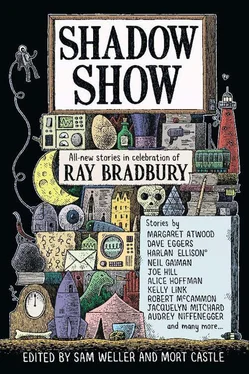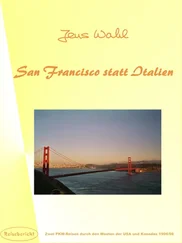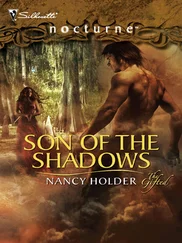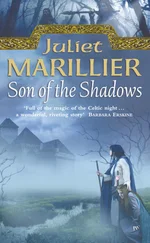It was this memory that caused me to write “The Girl in the Funeral Parlor.” But I didn’t want to just retell my experience; I wanted to look at my memory through the prism of fiction, as Ray Bradbury has regularly done in such stories as “The Lake,” “The Crowd,” “Banshee,” and so many others. I wanted my story to take on a life of its own, as good stories so often do. It was at this point that the concept came to me—what if you met the love of your life and it was too late? What if that true love was dead?
The story almost wrote itself from that moment forward.
Certainly, Bradbury’s 1957 novel-in-stories, Dandelion Wine , was a tremendous influence on my story—the small-town setting; the theme of unrequited love; the element of magic and sorrow in the everyday; the pervasive sense of melancholy. One of my very favorite lesser-known Bradbury short stories is “The Swan,” from Dandelion Wine (the titles of the stories in that book were removed to lend the further appearance that it is a novel rather than a connected collection). In “The Swan,” a man and a woman meet at completely different junctures in their lives. He is young and just starting out; she is old and at the end of her countless splendid days. My story looks at this theme of missed connections through a darker, more extreme lens. The two lovers never meet, for it is too late. One of them is already gone.
—Sam Weller
THE COMPANIONS
David Morrell
Frank shouldn’t have been there. On Thursday, unexpected script meetings required him to fly from Santa Fe to Los Angeles. His discussions with the film’s director and its star ended on Friday evening. Usually, he would have spent the weekend with friends in Los Angeles, but he loved opera, and he had tickets for the next night when Santa Fe’s opera company was premiering Poulenc’s Dialogues of the Carmelites , a work Frank had never seen. The tickets included a pre-performance dinner, along with a lecture about the composer.
“You just arrived in L.A., and now you want to fly back?” his wife, Debby, asked when he phoned. “If there’s an Ultimate Commuter award, I’ll nominate you for it.”
“I’ve really been looking forward to this,” Frank answered. Using his cell phone, he sat in his rented car outside the newest Beverly Hills restaurant, where the final meeting had ended. “Do you remember how many times I called the box office and kept getting a busy signal? The person I spoke to said I got the last two tickets.”
“The dinner’s supposed to be in a tent behind the opera house, right?”
“Right.”
“Well, the tent might not be standing. Yesterday the monsoons started.”
Debby referred to a July weather pattern in which moist air from the Pacific streamed into New Mexico, creating rains that were often violent.
“The storm was really bad,” Debby continued. “In fact, there’s another one coming. I shouldn’t be on the phone. It isn’t safe with the lightning this close.”
“I bet tomorrow will be bright and sunny.”
“It’s not supposed to be, according to the weather guy on channel seven. How were your meetings?”
“The director wants me to change the villains from presidential advisors to advertising executives. The star wants me to include a part for his new girlfriend. This opera will be my reward for listening to them.”
“You’re that determined? Be prepared to get wet.” The prolonged boom of thunder echoed behind Debby’s voice. “I’d better hang up. Love you.”
“Love you,” Frank said.
Frank’s plane was scheduled to leave Los Angeles at ten in the morning, but it didn’t take off until two.
“Bad weather in New Mexico,” the American Airlines attendant explained.
The jet came down through dark, churning clouds for a bumpy landing in Santa Fe shortly after five. The overcast sky made the afternoon dark.
“It’s been raining all day,” an airline employee told Frank. “This is the first break we’ve had.”
But a new storm beaded Frank’s windshield as soon as he got into his car. Poor visibility slowed traffic so that what was normally a fifteen-minute drive home took three times that long. Frank pulled into his garage at six. The dinner at the opera was supposed to start at seven.
He’d made various cell-phone reports to his wife. Even so, Debby looked relieved, as if she hadn’t seen him for weeks, when he walked in. To her credit, she was dressed, ready for the evening. “If you’re game, I am. But I think we’re both nuts.”
“I’m afraid I’m more nuts than you.”
“The umbrella’s in here.” Debby pointed to a knapsack they always took to the opera. The theater’s sides were open—people who dressed for daytime summer temperatures could feel frozen as the mountain air dropped from ninety to fifty degrees at night. “I’ve also got a blanket, a thermos of hot chocolate, and our raincoats. This had better be a good opera.”
“Look.” Frank smiled out the kitchen window, pointing toward sunlight peeking through the clouds. “The rain stopped. Everything’s going to work out.”
The theater was eight miles north of town. As Frank headed up Route 285, traffic was fast and crazy as usual, drivers changing lanes regardless of how slick the pavement was.
Debby pointed toward a police car, an ambulance, and two wrecked cars at the side of the road. “They’re putting somebody into the ambulance. My God. Somebody must have died. They covered the body.”
Traffic threw up a gritty spray that speckled Frank’s windshield. Troubled by the accident, he turned on the windshield wipers and reduced his speed. Horns blared behind him, vehicles racing past. Straining to see beyond the streaks on his window, he steered toward an exit ramp and headed up a hill toward the opera house.
There, he walked with Debby to a tent behind the theater. A bottle of wine stood on each table.
Half the seats were empty.
“See, not everybody’s crazy like us,” Debby said.
“Like me. ”
After choosing salad and chicken from a buffet, they sat at a table.
Frank glanced toward the entrance. Two men entered, surveyed the empty seats, saw Frank and Debby alone, and came over.
One of the men was short, slight, and elderly, with white hair and a matching goatee that made him look rabbinical. The other man was tall, well built, and young, with short, dark hair and a clean-shaven, square-jawed face. They both wore dark suits and white shirts. Their eyes were very clear.
“Hello,” the elderly man said. “My name’s Alexander.”
“And I’m Richard,” the other man said.
“Pleased to meet you.” Frank introduced Debby and himself.
“Terrible weather,” Alexander said.
“Sure is,” Debby agreed.
“We drove all the way from Albuquerque,” Richard said.
“I can beat that,” Frank told them. “I came all the way from Los Angeles.”
The two men went to get their food. Frank poured wine for Debby and himself, then offered to pour for Alexander and Richard when they came back.
“No, thanks,” Alexander said.
“It makes me sleepy,” Richard said.
The pair bowed their heads in a silent prayer. Self-conscious, Frank and Debby did the same. Then the four of them ate and discussed opera, how they preferred the Italian ones, could tolerate the German ones, and felt that French operas were sometimes an ordeal.
“The rhythm’s so ponderous in some of them,” Frank said, “it’s like being on a Roman slave ship, rowing to a drumbeat, like that scene in Ben-Hur .”
“But Carmen ’s good. A French opera set in Spain.” Richard found that amusing. “And tonight’s opera is French. I’ve never heard it, so I have no idea whether it’s worth our time.”
Читать дальше



![Lord Weller - Ритера или опасная любовь [СИ]](/books/421202/lord-weller-ritera-ili-opasnaya-lyubov-si-thumb.webp)








